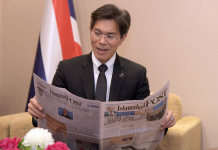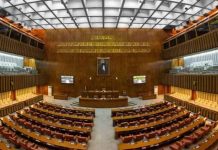ISLAMABAD: Six pre-bidding parties interested in acquiring the Pakistan International Airlines (PIA) seem hesitant to keep the existing workers of the national flag career and have also raised concerns on tax issues, The News reported, citing officials from the Privatisation Commission.
The remarks came during a session of the Senate Standing Committee on Privatisation on Thursday, where Chairman Tallal Badar questioned the reasons for the postponement of financial bidding initially scheduled for October 1. The bidding has now been rescheduled for October 31.
Privatisation Commission Secretary Usman Bajwa informed the panel that the said pre-bidding parties have also sought clarification from the government on the service and pensions of existing employees.
The bidding companies have requested warranty for 18 aircraft of the airline and protection from old litigations. He emphasised that efforts were underway to ensure there are no further extensions to the bidding deadline.
Chairman of the committee emphasised that PIA privatisation is a critical issue for the government. He warned that if the privatisation of PIA is not completed in a timely manner, it could adversely affect the privatisation of electricity distribution companies (Discos). He pointed out that repeated delays in the auction process are not projecting a positive image internationally. He urged that the October 31 deadline must be met at all costs.
Bajwa informed the committee that the auction date for PIA would not be extended further. He noted that investors have concerns regarding PIA’s liabilities of Rs200 billion, as well as issues related to employees and their pensions.
The investors have also requested a one-year warranty for 18 aircraft of the airline and protection against ongoing litigations. Bajwa assured the committee that the Privatisation Commission is working to provide job security for employees, noting that most issues have been resolved, with only a few remaining.
Meanwhile, Senator Mohsin Aziz urged the government to swiftly address the airline’s assets and employee matters to ensure the success of the privatisation program. The committee directed that the privatisation program should be conducted transparently.
Bajwa also said that all bidding companies had collectively requested an extension of the deadline, citing ongoing due diligence as the reason for the delay.
The officials noted that four pre-bid meetings had been held, but when pressed for a final deadline, they acknowledged that negotiations were still in progress regarding both tax issues and employee matters.
Senator Aziz criticised the commission, asserting that it has made little progress beyond the privatisation of a few banks over the past 12 years. He emphasised that issues concerning employees, assets and defaults should be managed by a single ministry to ensure a more streamlined approach.
Aziz cautioned that the commission and ministry would continue to face challenges post-privatisation if these matters are not adequately addressed.
Badar emphasised the urgency of the situation, stating that the committee needs timely updates on the transaction as delays exacerbate the country’s challenges. The Privatisation Commission secretary noted that timelines are contingent on evaluations and negotiations, adding that legacy liabilities remain an ongoing issue.
He was directed by Badar to finalise the process by October 31, with the chairman expressing optimism about the potential positive outcomes of the privatisation of Pakistan International Airlines Corporation Limited (PIACL).
During a briefing on the proposed privatisation of electricity distribution companies (Discos), Badar inquired about the stalled privatisation of Faisalabad Electric Supply Company (Fesco), which he noted was reportedly nearing completion in 2016-2017. Concerns about labour issues were highlighted by a representative from the Ministry of Power, who indicated that employee apprehensions have significantly hindered privatisation efforts.
Further discussions revealed Badar’s concern over the current conditions of Fesco and Peshawar Electric Supply Company (Pesco), noting that potential buyers would likely be deterred under the present circumstances.
He urged officials to evaluate the performance of the boards managing these companies and to address the reasons for their current states. In response to questions regarding expenditures associated with the privatisation of Discos, a consultant from the Power Division reported that approximately Rs250 million had been spent.
The committee unanimously agreed to convene a joint meeting with the Senate Standing Committee on Power to further investigate the details and shortcomings of the companies in question.
Concerns were also raised regarding K-Electric’s privatisation. Badar questioned whether the commission had evaluated the success or failure of this process.
Officials confirmed that K-Electric holds three licenses for distribution, generation, and transmission, but clarified that only distribution licenses would be offered for privatisation while generation and transmission would remain under the government control.
“This indicates that the privatisation of K-Electric was not successful,” Badar stated, noting the company’s failure to invest according to their agreements. A member of the committee inquired about the actions taken regarding K-Electric’s unfulfilled commitments.

















